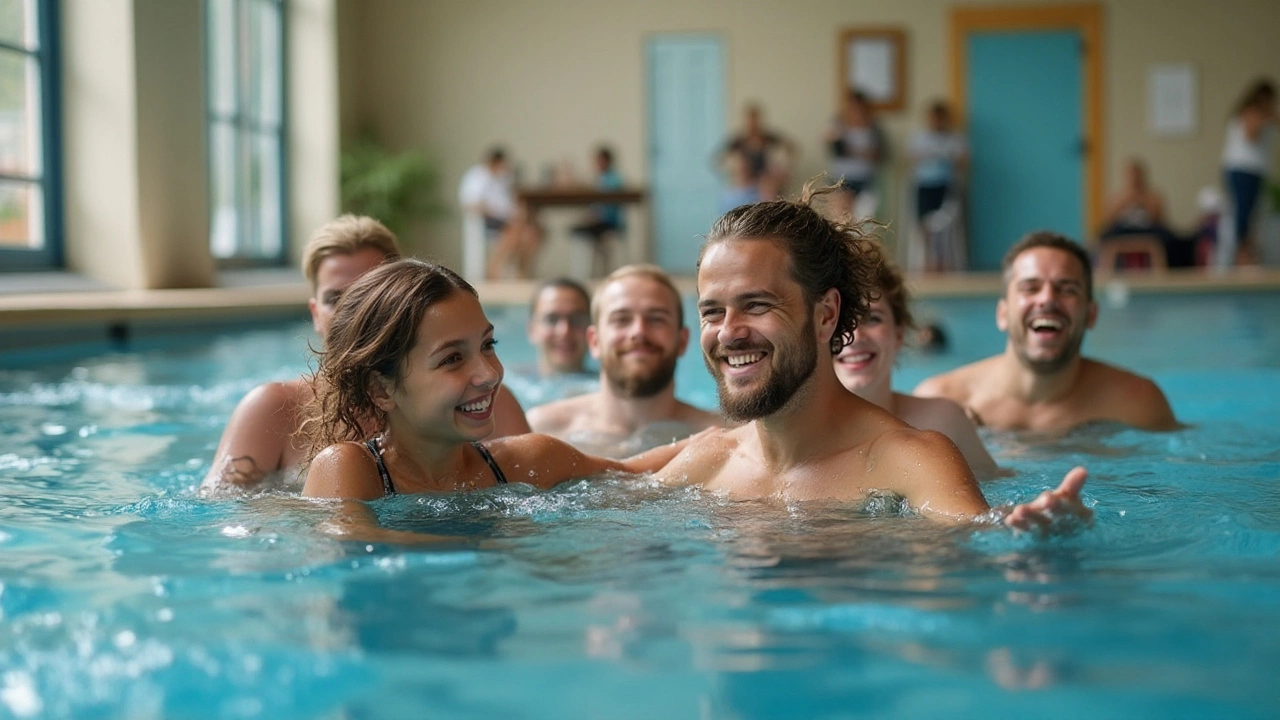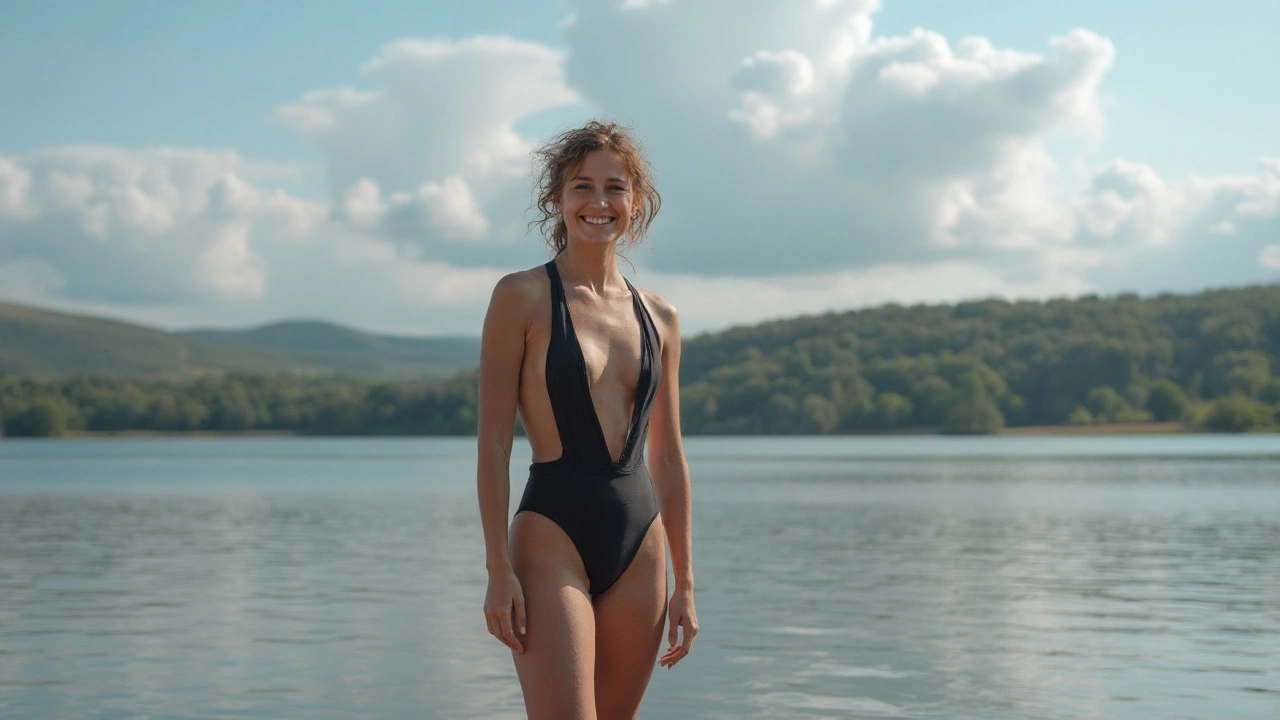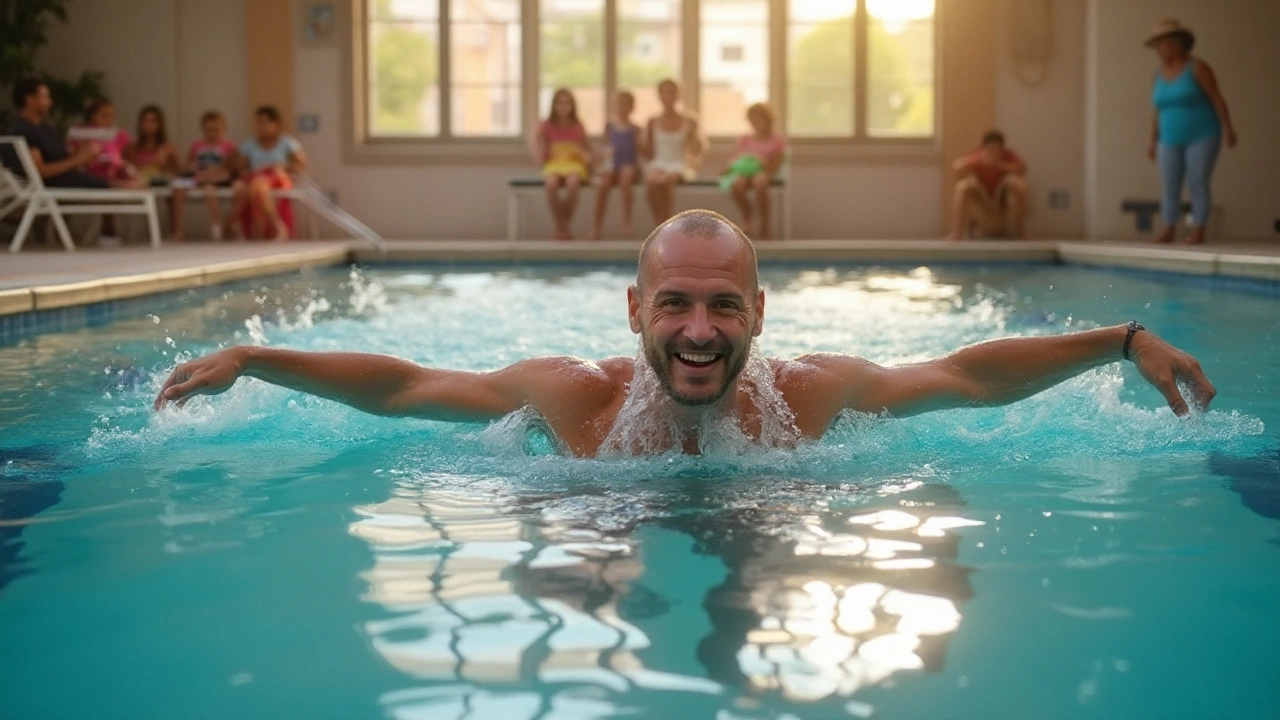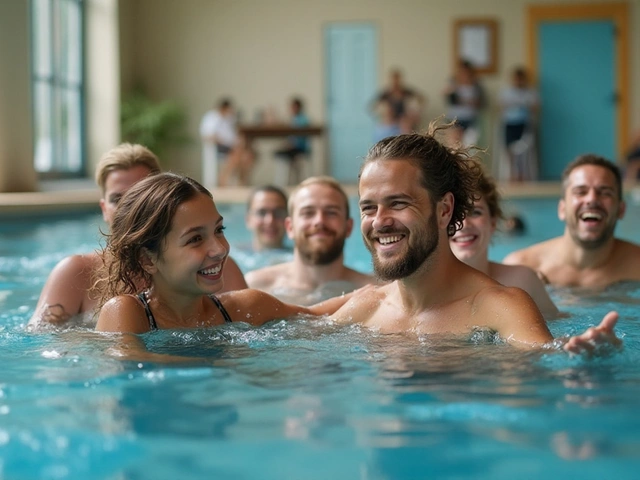Learning to Swim as an Adult: Overcoming Challenges and Embracing the Water

Learning to swim as an adult is a journey worth exploring, yet many find themselves hesitant about taking the plunge. It's a common misconception that swimming is reserved for the young or those fortunate enough to have grown up with access to pools.
The truth is, people of all ages can benefit immensely from learning to swim, not only for safety purposes but also for health and leisure. This exploration into adult swimming unpacks the hurdles one might face and reveals effective strategies to conquer them.
Whether it's calming the fear of water, understanding the basic techniques, or simply finding time in a busy schedule, there are ways to successfully integrate this skill into an adult's life. Embrace patience, celebrate small victories along the way, and allow the immersion in water to open up a world of possibilities.
- Why Adults Learn Swimming Later in Life
- Challenges Faced by Adult Beginners
- Benefits of Learning to Swim as an Adult
- Tips for Successful Swimming Lessons
- Embracing the Process and Building Confidence
Why Adults Learn Swimming Later in Life
Many adults find themselves venturing into the world of swimming at a later stage in life for a variety of compelling reasons. It might surprise some, but fear often plays a pivotal role. Growing up with a fear of water can create a barrier that becomes progressively harder to cross over time. Such fears often stem from traumatic childhood experiences or simply missing out on swimming lessons earlier in life. Yet, this apprehension isn't insurmountable. Modern adult swimming lessons emphasize creating a safe, supportive environment, allowing students to build confidence at their own pace.
Moreover, the growing awareness of health and wellness has encouraged adults to seek out new ways of staying fit, with swimming being an excellent full-body exercise. It's one of the few sports that caters to almost every ability level, making it inclusive and versatile. Additionally, swimming is gentle on the joints and can be continued well into senior years, which is increasingly attractive to adults looking for long-term fitness options. As people learn more about the profound health benefits associated with swimming, including improved cardiovascular health and reduced stress, they are inspired to take those first strokes into the pool.
In some instances, maturity brings with it the realization that swimming is an essential life skill. The ability to swim not only enhances safety during water-related activities but also opens the door to more adventurous aquatic sports. A survey from the American Red Cross in 2014 revealed that more than half of American adults are unable to perform basic swimming strokes needed for water safety. It's insights like these that prompt many adults to reconsider their skill set and take action. Realizing the importance of water skills, particularly for those who have young children, adds another layer of motivation. Adult swimming lessons are specifically designed to address the unique challenges faced by adult learners, offering both personalized and group environments where adults feel less self-conscious about learning to swim.
"You're never too old to set another goal or to dream a new dream." – C.S. Lewis
It's heartening to note that society's views on learning including skills like swimming—are evolving. There's an increasing appreciation for lifelong learning, and hobbies or skills no longer have strict age boundaries attached. Whether it's a desire to conquer fear, desire for social interaction, or simply the pursuit of a healthier lifestyle, more and more adults are finding the courage to jump into swimming lessons. By doing so, they're opening doors to activities that were once off-limits, be it swimming with children, holiday snorkeling trips, or participating in aquatic events. This mindset shift is encouraging, showing that you can truly dive into new experiences at any age without limitations.
Challenges Faced by Adult Beginners
Stepping into a pool as an adult with the intent to learn swimming can be daunting, particularly when surrounded by more experienced and younger swimmers. One of the primary hurdles is overcoming a pervasive fear of water. This apprehension is often rooted in past experiences or simply the unfamiliarity with being in a large body of water. Unlike children, adults tend to be more aware of potential dangers, making it harder to let go and trust the process. This fear can manifest in the form of panic attacks or reluctance to fully immerse themselves.
Another significant challenge is the lack of adequate time. With busy work schedules, family commitments, and social obligations, adults often struggle to carve out moments for swimming lessons. This limited availability can result in slower progress, leading to frustration and, at times, discouragement. Consistent practice is critical in building swimming skills, but it's difficult to achieve when juggling multiple responsibilities every day.
Physical fitness and body image issues also play a considerable role in hindering adults from learning to swim. As we age, our bodies are no longer as nimble or resilient as they once were, and adults might find some movements challenging or exhausting. These physical limitations can be intimidating, especially when surrounded by younger, more agile swimmers. Adults may also be self-conscious about their bodies, deterring them from participating in an activity which requires wearing a swimsuit in public.
Moreover, cognitive challenges can arise as well. Unlike children, adults tend to have more ingrained habits, which makes learning entirely new movements, like those required in different swimming techniques, quite difficult. The technical aspects of swimming, such as coordinating breathing with strokes or perfecting posture, add layers of complexity to the learning process.
"It's never too late to learn, but adults must embrace patience and persistence," says Tom Swartz, a seasoned swim instructor with over 20 years of experience. "Understanding that each small step is progress is vital."
Lastly, adults often face financial constraints when signing up for swimming lessons. High costs can deter people from committing to classes long-term, and they might hesitate to invest in personal coaching or specialized swimming aids that can enhance their learning experience. However, recognizing the value of this investment not just in terms of safety but also health and leisure can sometimes mitigate this concern.

Benefits of Learning to Swim as an Adult
Many adults discover the joys of swimming later in life and find that it offers numerous advantages beyond just a refreshing dip in the pool. Primarily, swimming provides a full-body workout that enhances cardiovascular health while being gentle on the joints. This is particularly beneficial for those who may have existing injuries or who experience joint pain from high-impact exercises like running or jumping. The buoyancy of the water supports the body, reducing stress on muscles and joints while enabling a range of movements that can improve flexibility and strength.
Moreover, swimming is an excellent way to alleviate stress and improve mental health. Immersing oneself in water has been shown to reduce stress hormones while boosting mood-enhancing neurotransmitters like serotonin. For adults juggling numerous responsibilities from work to family obligations, this aquatic escape can become a sanctuary of tranquility. The rhythmic strokes and the focus on breathing create a meditative effect, often leading to improved mental clarity and reduced anxiety.
The social aspect of learning to swim should not be underestimated. Joining swimming lessons or clubs allows adults to connect with like-minded individuals sharing a common goal. This camaraderie can foster a supportive environment that motivates continued participation and enjoyment. For some, networking opportunities arise as friendships extend beyond the pool, enriching social lives and providing new avenues for personal growth.
The confidence that comes with mastering a new skill cannot be overlooked. According to the World Health Organization, swimming is a crucial life skill that can enhance safety in and around water. By learning to swim, adults increase their ability to protect themselves and their loved ones in water-related situations. This competence translates into increased self-esteem, encouraging them to pursue other novel experiences.
"Swimming not only engages our body in exercise but also engages our mind in focus and relaxation," states Sarah Ashworth, a renowned swimming coach. Her insights stress the holistic benefits of this activity, touching on both the physical and psychological perks.
Finally, acquiring swimming skills as an adult opens up a range of leisure activities such as snorkeling, diving, or simply enjoying a day at the beach or lake with friends and family. These experiences enrich one’s life, allowing for enjoyment and adventure that a non-swimmer might miss out on. In a sense, the water unlocks a world previously inaccessible, inviting adults to explore and relish in its vast potential.
Tips for Successful Swimming Lessons
Embarking on the journey of learning to swim as an adult might seem daunting, but with the right approach, it can also be incredibly rewarding. The first tip to ensure success is selecting the right environment and the right instructor. Look for a swimming school that caters to adult beginners, with instructors who understand the unique challenges faced by adults. Patience and a supportive environment are key to feeling comfortable and motivated in the water. Make sure the classes are small enough so the instructor can give personalized feedback, which is invaluable for steady progress.
Another crucial factor is setting realistic goals. Break the swimming journey into manageable tasks—perhaps starting with simple floating or getting comfortable with water on your face. By achieving these incremental goals, you’re setting yourself up for continued success without overwhelming your mind or body. Remember, progress in the pool is not always linear, and that is perfectly fine. Allow yourself to relish the small victories; they are stepping stones that lead to becoming a confident swimmer. To track your progress effectively, consider maintaining a swimming journal.
Proper gear also plays an important role in your success story. Investing in a well-fitted swimsuit, goggles, and swim cap can enhance comfort and boost your confidence underwater. Gear that fits well not only makes the experience more pleasant but also eliminates the worry of adjusting equipment during lessons. Comfortable gear can lead to improved focus on learning and adapting technique. Once you’re fully equipped, practicing regularly is important. Like with any other skill, consistency is key. Schedule your swimming sessions just like you would any other important appointment; creating a habit helps maintain momentum.
For those who struggle with the fear of water, understanding and confronting these emotions is another pivotal task. One effective approach is to spend time in the pool outside of structured lessons, simply getting to know the environment better at your own pace. Breathing exercises can also aid in calming nerves, both in and out of the water. As one famous swim coach once said,
"Swimming is not about battling the water; it's about becoming one with it."Approaching your time in the pool with this mindset can transform fear into a meditative experience. Seek inspiration from stories of other adults who have successfully learned to swim and let their experiences guide you through challenges.
Lastly, support from family and friends can also contribute significantly to progress. Invite a buddy to learn alongside you, or at least share your experiences with someone who can offer encouragement (or a fun splash around). Being accountable to a friend provides extra motivation when days feel tough. For adult learners, swimming is not only about learning a life skill, but it’s also about embracing a healthy lifestyle opportunity. Enjoy the process, and celebrate your journey—all the splashes along the way!

Embracing the Process and Building Confidence
Embracing the process of learning to swim as an adult requires a mindset shift. Many adults enter swimming lessons with a mix of nervous anticipation and excitement. While this is completely normal, it's important to focus on progress rather than perfection. Build patience by acknowledging every small achievement. It might be something as simple as learning to float or mastering the art of breathing correctly. With each new skill, confidence will grow, making the experience all the more enjoyable.
Building confidence in the water involves getting comfortable with the sensation and movements that come with swimming. Often, adults carry a fear of water from formative experiences or simply because they haven't had much exposure to aquatic environments. Regular practice and positive experiences are key to overcoming these anxieties. Placing trust in your instructor can be a monumental step. They bring expertise, encouragement, and techniques suitable for adult beginners.
Consider an open-minded approach to the learning curve and remind yourself that every swimmer once stood in your position. Many find that joining a supportive community, like a local swimming club or group class, adds a layer of camaraderie and shared ambition. As the American Swimming Coaches Association mentions, "There is power in community." A mix of personal learning and group guidance can provide robust support, particularly when surrounded by like-minded individuals who are navigating the same journey.
Developing a routine is another effective strategy. Schedule consistent swimming lessons to foster familiarity and ease in the water. Taking the time to practice between classes can also solidify what you've learned and fast-track your progress. Use varied techniques, such as visualization, to mentally rehearse different strokes and breathing patterns. This mental preparation can contribute significantly to building confidence when immersed in a real-life swimming session.
Nurture a resilient mindset by celebrating progress. Each small step forward is an achievement worthy of recognition. Having realistic expectations, acknowledging challenges, and adjusting goals can help mitigate frustration. Remember, the ultimate goal isn't just learning to swim, but also enjoying the process and building a lifelong confidence in water activities. To further illustrate the benefits, consider integrating exercises that enhance overall body coordination; like dance or yoga, they enhance balance and focus, translating directly into improved swimming skills.

